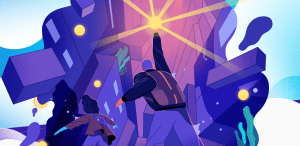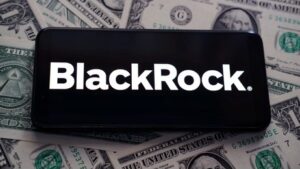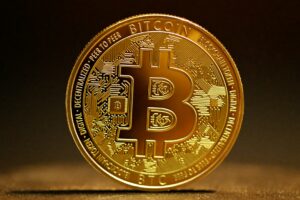
For the uninitiated or crypto-curious folks on the market, non-fungible tokens (NFTs) symbolize one of many extra colourful sectors of the cryptocurrency business.
How is it that seemingly duplicable, oftentimes wacky items of digital art work can fetch terribly excessive costs, and why are folks flocking to purchase these intangible objects?
It’s actually a troublesome matter to get your head round, however let’s give it a strive.
What precisely is an NFT once more?
First off, it’s vital to level out that if you buy an NFT, most often you’re truly shopping for is a digital token that merely factors to a selected pc file that exists elsewhere on the web. That mentioned, there are some NFT platforms that retailer the digital file within the blockchain itself.
This file may be something from an MP3 to an in-game costume or a cartoon animal image.
Consider it as a digital deed to a plot of land. The deed represents possession of that exact property however, in actual phrases, the deed just isn’t the plot itself.
Equally, most often the NFT is NOT the digital merchandise itself.
So, whereas it might look like it’s all one factor, there are literally two separate parts concerned.
- The digital merchandise itself (an image of a cartoon ape, a GIF of an animated cat with a Pop-Tart torso, and so forth.)
- The non-fungible digital token that incorporates distinctive figuring out metadata that factors to the above merchandise, i.e. File location, merchandise title, distinctive traits, contract handle, and so forth.
An NFT is solely a tradable digital token that shops vital metadata (digital data) pertaining to the related digital merchandise. This data is exclusive such that even for those who have been to screenshot or duplicate the meant file and mint a brand new NFT to symbolize it, it will include completely different metadata and due to this fact it will be straightforward to determine which one was the unique and which one was a replica.
Simply as you possibly can’t “copy” a bit of actual property {that a} deed describes, you possibly can’t simply copy the digital object that an NFT describes. You possibly can take an image of a plot of land or proper click on on a humorous cat NFT, however the object the NFT pertains to stays the identical.
This ease of authentication is due to the immutable, clear, free-for-all-to-see nature of blockchain technology on which all NFT tokens are saved.
If you purchase an NFT, the blockchain shops information that claims a selected digital token is linked to a selected merchandise. This, in flip, is linked to a selected crypto wallet handle. For those who select to promote the NFT, the system updates the blockchain information to replicate the brand new proprietor’s crypto pockets handle.
With that refresher in thoughts, again to what you personal.
What do you actually personal if you purchase an NFT?
The possession a part of NFTs isn’t as simple as you may suppose.
On one hand, if you purchase an NFT you might be basically shopping for a token that offers you bragging rights in an effort to inform everyone “there may be lots of of copies of this digital image on the web, however I personal the unique one and right here’s the immutable proof (within the type of a novel digital token) to show it.”
However however, when you will be the “proprietor” of an unique digital merchandise, that doesn’t essentially imply you’ve got any rights regarding that merchandise, to say, use it as a enterprise emblem or create and promote memorabilia primarily based off of it. Oftentimes, these mental property rights stay with the particular person or individuals who first created the merchandise, however this typically differs by NFT assortment.
That isn’t to say there aren’t NFTs that do grant open license utilization. More often than not, except expressly talked about by the creator, patrons shouldn’t simply assume these rights are mechanically handed over upon sale.
So, briefly, what you personal is a digital token that immutably factors to an unique digital merchandise. Past that, holders of sure NFT collections similar to Bored Apes Yacht Club (BAYC) have discovered methods of accelerating utility by establishing their very own unique communities. These non-public channels permit like-minded folks to share concepts, data, and obtain perks like early entry to new NFT drops.
Advances in DeFi protocols additionally means holders can now lease their NFTs to others in some cases.
What occurs if the digital file is deleted?
For those who solely personal the NFT and never the digital file itself, then what would occur if the unique creator determined to wipe the file, or it bought by accident deleted?
This is among the main drawbacks of NFTs proper now. In a rush to capitalize on the surging NFT pattern, many creators fail to adequately safe their NFT information. Which means if that information will get misplaced or corrupted, the NFT will level to nothing and be rendered nugatory.
A current instance of that is the widespread lack of many NFTs minted on the now-defunct FTX change. As an alternative of internet hosting NFT information utilizing a decentralized, blockchain-based storage answer like Storj or Sia, FTX hosted them on FTX US servers which at the moment are not operational. Because of this, affected NFTs not hyperlink to their unique recordsdata, however as an alternative, direct customers to an FTX webpage that outlines the corporate’s insolvency. Unlucky occasions like this re-illustrate the significance of decentralized NFT metadata storage and can hopefully set new requirements for collections going ahead.
Studying how NFTs work now will provide help to navigate the way forward for the metaverse and digital possession. Many wager that we might finally find yourself shopping for and promoting digital items in the identical manner we promote bodily ones. In spite of everything, we’ll nonetheless want cool sneakers, T-shirts, and jewellery whether or not we’re hanging out in an actual bar or a digital one.






More NFT News
Is Bitcoin Getting Prepared For An Explosive Breakout?
Strike's Growth into Europe Accelerates Bitcoin Adoption
Nigeria denies freezing over 300 P2P accounts on extra crypto exchanges amid foreign exchange issues